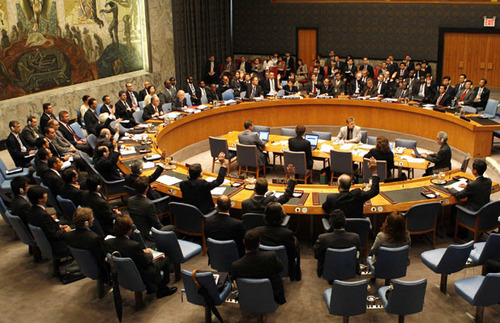A global education action agenda affirming the importance of Sustainable Development Goal (SDGs) 4, was adopted on Thursday in Gyeongju, South Korea.
Gyeongju Action Plan said in a statement that the agenda is tends to extend the need to ensure inclusive and equitable quality education and promoting lifelong opportunities for all.
The Gyeongju Action Plan provides concrete guidance for Non-Governmental Organisations (NGOs) worldwide to enhance their ability to woo governments to implement the SDGs and mobilise NGOs in communities on the ground.
Ms Cristina Gallach, UN Under Secretary-General for Communications and Public Information, said the Action Plan was adopted at the conclusion of the 66th UN Department of Public Information (DPI) and NGOs Conference.
“The conference has demonstrated another example of the value for the UN in investing in partnership with academia and NGO.
“The UN is committed to continue to support and partner with NGOs and academia in our joint efforts to advocate for and successfully implement the 2030 Agenda,” Gallach said.
She noted that the newly adopted Action Plan includes a series of concrete measures for NGOs around the world to jump-start implementation of the 2030 Agenda at the grass roots level.
She also pointed out that for the first time in the history of the DPI/NGO Conference, youth also developed and issued a Youth Declaration.
“The youth had come in great numbers, demonstrating the value that they see in partnering with the United Nations,’’’Gallach said.
Dr Scott Carlin, Associate Professor of Geography at Long Island University, U.S., said that NGOs from around the world brought passion and expertise to lively final consultations on the outcome document.
“We are grateful for all of the inputs received and very proud of the Gyeongju Action Plan.
“We hope that Gyeongju was an inspirational setting for finalising a truly unifying action plan that will be useful for NGOs, wherever they are working,” he said.
Ahmad Alhendawi, the UN envoy on Youth, saying “the conference will not only reinforced the critical role of NGOs to achieve a vision for the 2030 Agenda, stressed the urgency for greater investments in education for Global Citisenship to unlock the potential of this massive generation of children and youth.”
“Unfortunately youth are still not involved enough in policy making processes around the world,” the UN envoy lamented.
He said that the Youth Declaration is a necessary reminder that young people are needed as leaders and decision-makers not only in youth forums and special-purpose councils.
“The youths are needed in those spaces where the course and direction of society as a whole are determined,” Carlin said.
The Action Plan was drafted through a global multi-stakeholder consultation process, leading up to, and during the conference.
It was adopted at the conference’s final plenary session and will be shared widely with civil society groups around the world.
It will also share with the UN Secretary-General, the UN System, UN member states and learning communities.
In the last three days, the conference held series of round tables, 45 workshops, 69 exhibitions and a series of youth-related events.
The conference was organised in cooperation with the NGO/DPI Executive Committee, the NGO community, and South Korea government.
The conference has “Education for Global Citizenship: Achieving the Sustainable Development Goals Together” as its theme.

